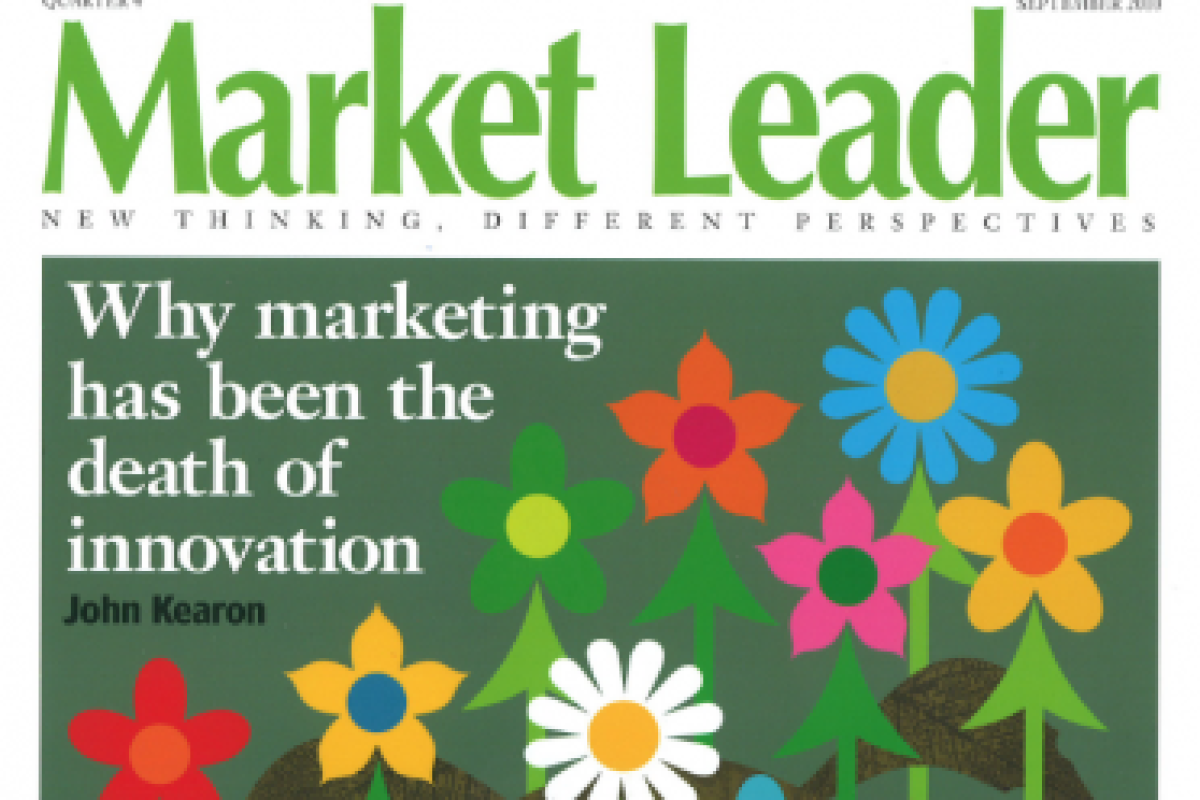A fortune is spent on market research but companies are failing to make the most of their investment, says Alex Batchelor
In a 20-year career in which I have worked as a marketing director for Unilever, Orange, Royal Mail and TomTom, as well as in advertising and brand consultancy, it is disappointing to report that I have met only one CEO who spontaneously asked me about market research. I wasn't that convinced that marketing directors were bothered about market research either. This is even more surprising when you consider how much money they are spending on it. Global market research was worth $32.5 billion in 2008 and has been growing for the past 20 years.
Why? The easiest place to start is board reporting. I have seen the board papers and financial plans of a lot of companies as a result of six years doing brand valuations at Interbrand; I have also sat on a few boards. All the board packs I have seen included a historical profit and loss, and in most, a balance sheet and cashflow.
All included some projections and an evaluation of performance on key financial metrics versus budget and versus the previous period or year. The good ones also included a lot of operational data – about factory efficiency, sales channel effectiveness or whatever was appropriate for the industry.
Very few, however, included any metrics on customers and their behaviour that weren't reduced to the financial metrics already covered. Even fewer contained any of the market research. I remember one finance director saying ‘Everything we need to know about our customers is covered in the revenue line – they are either buying or they aren't'.
INSIGHTS INTO BEHAVIOUR
In every company I worked for I have agitated to include basic customer information: how many customers, buying how often, in what quantities? Long-term trends on these metrics using 12-month moving annual totals can give the lie to many projections and plans and are very useful for boards. Wherever possible you want to include operational data that gives insights into customer behaviour. How many calls to the call centre; how many complaints; what are the complaints about?
However, the monthly cycle of most board meetings can be a problem and it's important to choose metrics carefully. Some tracking data is slower to change than other customer metrics. Choose one that is too volatile and people stop trusting it. Choose one that is too stable and it has no function as a predictive tool.
An issue that particularly interests me is just what consumers can usefully tell you. The wisdom of crowds work is showing us that we are better at judging the behaviour of others than giving truthful answers about our motives. Sometimes we don't know why we do things; sometimes we simply dissemble and give socially acceptable answers.
I am sure that shareholders in Marks & Spencer or British Airways would have been better served by metrics asking people if they thought those companies were getting better or worse than by many traditional metrics looking at more usual measures of awareness and consideration.
I am also sure it would have made many of the issues for the Royal Mail a lot clearer if it had been able to distinguish between the views of those who pay for most of its services (large and small companies) and those who receive the mail but do not directly pay for it (all of us).
Many of the advances in research in the past 20 years also seem to have come from behavioural economics rather than research. Like many other people I have enjoyed reading Freakonomics, The Wisdom of Crowds, works by Malcolm Gladwell and others. It seems that understanding customers and their behaviour is enhanced more by these works than by conventional syndicated and tracking research studies. Sometimes you have to be creative about how the data is represented.
The story of how the Dove brand/agency team sold in the Campaign for Real Beauty is a classic one of taking research imaginatively to the boardroom. The team knew from their extensive research that young girls felt huge pressure to be beautiful. They also knew the Unilever board making the go/no-go decision was made up entirely of men of a certain age. So the team made a film of them interviewing the daughters, and in some cases granddaughters, of the board members, talking about the pressures they felt, as well as their joy at what Dove was planning with the Real Beauty campaign. They showed the film, there wasn't a dry eye in the house and the rest is history.
I do not see how you can claim to run a successful business, with sustainable, customer-led demand driving profitable growth without using market research. Although there is an onus on market researchers to make their data more accessible and relevant, the key responsibility lies with marketing directors to promote consumer insights more imaginatively, to the decision makers.
Alex Batchelor is chief operating officer at BrainJuicer. [email protected]. Adapted from an article in Research, February 2010
